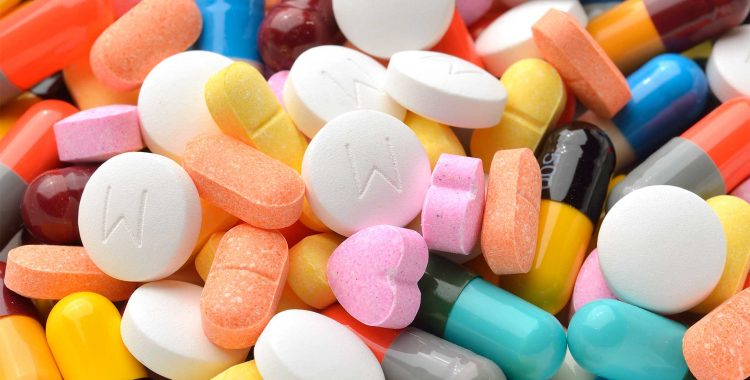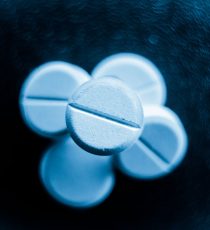
Recovering from drug addiction can be a difficult process, but this guide will help you through it. Specifically, this guide will talk about staying sober after completing a Molly rehab program.
Why is Molly addictive?
First, let’s talk about what Molly is and why it’s addictive. Molly, also known as MDMA or ecstasy, is a synthetic drug that alters mood and perception. It’s often used at parties or raves because it produces feelings of euphoria, increased energy, and a heightened sense of empathy. Users like the heightened emotional states they get out of the drug. However, it’s also highly addictive because it floods the brain with dopamine, a neurotransmitter that plays a key role in the brain’s reward system.
In the brain, Molly works primarily by increasing the activity of neurotransmitters, including serotonin, dopamine, and norepinephrine. Here are some of the effects that the drug has on the brain:
- Increased serotonin: Molly causes a surge in the levels of the neurotransmitter serotonin in the brain. Serotonin is involved in regulating mood, emotions, appetite, and other physiological processes. The increased serotonin levels caused by Molly can produce feelings of euphoria, empathy, and closeness to others.
- Altered dopamine levels: Molly also affects the levels of dopamine, a neurotransmitter that is involved in the regulation of pleasure and reward. The drug can cause dopamine levels to increase, which can produce a sense of pleasure and reward, and contribute to its addictive potential.
- Increased norepinephrine: Norepinephrine is a neurotransmitter that plays a role in the regulation of heart rate, blood pressure, and the body’s response to stress. Molly can cause an increase in norepinephrine levels, which can lead to increased heart rate, blood pressure, and other physiological changes.
- Damage to serotonin-producing neurons: Repeated use of Molly has been shown to damage serotonin-producing neurons in the brain. This damage can lead to long-term changes in mood, memory, and cognitive function, and may contribute to the development of depression, anxiety, and other mental health issues.
- Impaired cognitive function: Molly use has also been linked to impaired cognitive function, including problems with memory, attention, and decision-making. This may be due in part to the damage caused to serotonin-producing neurons in the brain.
What are the signs of an addiction?
If you or someone you know is addicted to Molly, there are a few signs to look out for. These include:
- Increased tolerance to the drug, meaning that you need more of it to achieve the same effects
- Withdrawal symptoms when you stop using the drug, such as depression, anxiety, and difficulty sleeping
- Continuing to use the drug despite negative consequences, such as relationship problems, work or school issues, or legal trouble
- Isolating yourself from others and family when using the drug
- Having a new circle of friends, all of whom are drug users
- Getting into debt or financial problems because of drug use
- Participating in crimes to get more drugs
- Being unable to quit using the drug even if you want to
Why is drug rehab important?
Seeking professional help is the best way to overcome a Molly addiction. This may involve going to a rehab center, where you can receive personalized treatment and support. The rehab process typically involves a combination of individual and group therapy, as well as behavioral and cognitive therapies to help you develop coping skills and strategies for staying sober.
One of the most important aspects of rehab is learning how to identify and manage triggers. Triggers are anything that might cause you to crave Molly or feel the urge to use it again. These can include social situations, stress, or even certain people or places. By learning how to recognize and cope with triggers, you can reduce your risk of relapse and maintain your sobriety long-term.
Another key component of rehab is developing a support system. This can include family and friends, as well as other people in recovery who can relate to what you’re going through. Support groups such as Narcotics Anonymous (NA) can be particularly helpful, as they provide a safe and supportive environment where you can share your experiences and learn from others.

How can I keep myself clean after rehab?
Here are a few tips to stay sober after completing your rehab program:
- Take care of your physical health: This includes eating a healthy diet, getting enough sleep, and engaging in regular exercise. Physical activity can be particularly helpful in reducing stress and improving mood, which can help prevent relapse.
- Practice self-care: Self-care activities such as meditation, yoga, or taking a relaxing bath can help reduce stress and promote relaxation. This can be especially helpful when you’re feeling triggered or struggling with cravings.
- Stay connected: Maintaining relationships with supportive friends and family members is key to staying sober. It’s also important to continue attending support group meetings or therapy sessions, even after completing your rehab program.
- Avoid triggers: This may involve making changes to your social life, such as avoiding parties or other events where drugs are present. You may also need to avoid certain people or places that are associated with drug use.
- Develop a plan for coping with cravings: Cravings are a normal part of the recovery process, but it’s important to have a plan in place for how to deal with them when they arise. This might include distracting yourself with a hobby or activity, reaching out to a friend or support group member, or practicing relaxation techniques.
- Continue your therapies: It’s important to continue working with a therapist or counselor after leaving rehab. Continued therapy can help you address any underlying issues that may have contributed to your addiction. Also, it provides ongoing support and guidance as you strive to stay sober in the outside world.
Remember, recovery is a lifelong process, and staying sober after completing a rehab program requires ongoing effort and commitment. But with the right support, strategies, and mindset, it’s absolutely possible to achieve and maintain sobriety.



